- Home
- neetha Napew
Forbidden Land Page 15
Forbidden Land Read online
Page 15
Karana’s fingers curled into the moist, thick neck fur of the shivering dog. He knew that although the animal was seeking comfort from him, it had come to the wrong man. And although his people looked to him as their magic man, he felt vulnerable and afraid.
It was not Karana who leaped to save you from the killing wind, my friend. It was Torka, And it is because of Karana’s lies that Torka and his followers are here, in this hostile far land, walking toward a watery death.
But he could not bring himself to speak his thoughts. He observed the terror in the eyes of his people, heard the sobbing of the children, and saw Eneela, Simu’s woman, cradling her yearling boy as she buried her face in her furs and in the soft thatch of Dak’s little head. Beside her, Wallah had scooted back from the fire pit to draw her grown daughter into a protective embrace.
Mahnie! Karana almost called out her name. As his gaze met hers, he saw terror leaping in her eyes like frightened caribou racing across a darkened plain. How young she looked! How young she toasl How he loathed the custom of their ancestors, preventing men and women from mingling within a communal hut as long as the spirit of life leaped within the central fire pit. He longed to go to her, to draw her into his arms and hold her close; but he was as frightened as she, and with the storm menacing them, this was no time to risk breaking a taboo.
“Karana!” Mahnie spoke his name as a tremulous sigh of love and longing, then clung to her mother as if she were a child again and all of the problems of the world might disappear if only she could burrow deep enough into her mother’s arms and breasts.
Across from him, Lonit and lana cleaved with the little girls as, in a voice no louder than the peep of a tiny bird, Summer Moon piped a query that struck all who heard it with a power somehow greater and more threatening than the storm’s.
“Are the sky spirits angry with baby Umak again, Magic Man?”
“No!” cried Lonit before Karana could respond, as though her denial could erase the question.
The eyes of the people focused upon her and the infant that lay hidden within her fur.
“Chant now, Magic Man!”
This time Torka’s command could be neither ignored nor denied. The young man obeyed, although he did not know the time-honored words and was certain that even if he did, it would not matter. He sat cross-legged, his hands resting upon his knees, his back perfectly straight, and his eyes closed as, through his chant, he implored the forces of Creation to hear him .. . not for his sake, for he was surely undeserving of anything but contempt, but for the sake of his people.
He did not know when the trance came over him, or when the storm began to ebb, or when the dog looked up at him and began to nudge his hand. He knew only that his eyes were open, and although he could see his breath hovering as a cloud before his face, it was no longer cold under the broad, antlered dome of the communal hut. The burning dung and bones had yielded their substance and warmth to the glowing stones beneath them. Outside, the dry, subfreezing wind still howled across the world like an invisible horde of ravening wolves, but somewhere along the way the wind wolves had eaten, and the worst of their bite was gone. Around him, the hut smelled of warmth and life, and in the soft, pulsing glow that emanated from the stones in the fire pit, the faces of the members of Torka’s little band seemed to float in the darkness as they all stared at him in wonderment.
Was it Karana’s magic that turned the tide of the storm in favor of Torka and his little band? Perhaps, but Karana could not be certain. The wind had definitely died down. And something had happened to him—he felt as if he had been wounded and weakened by the loss of blood ... as if his spirit had drained from his body, leaving him cold and mysteriously detached from himself. Now, slowly, his spirit was flowing back into his body, along with warmth and consciousness.
Mahnie was kneeling before him, lovingly touching his face and shoulders and arms as though she were not certain if he was alive. “Karana?” She whispered his name as though intoning a prayer.
He could not summon the energy for a response.
Peeking around Mahnie’s side, Summer Moon came forward and smiled. She was such a pretty little thing, with her oval face and great antelope eyes, which always followed him with adoration. “This girl told her mother that Magic Man could send the storm away if he wanted to! For Magic Man .. . from Summer Moon, who is glad that Karana did not let the storm eat her up.”
Her upturned palms were pale hollows in which lay two gifts: a fluff of downy owl feathers and a greenish, unusually smooth pebble. Tiny things, meaningless souvenirs gleaned here and there on the trek eastward across the Forbidden Land .. . insignificant objects that would have no importance to the man except that he knew them to be precious to the child. For her sake, he smiled back
at her, and for her sake, although he had not bothered to summon the energy to speak a single word to his adoring Mahnie, he managed to raise a hand and accept the gifts from Summer Moon.
He held them close as he drifted back to sleep. And for the first time in more days than he could remember, it was a sound, untroubled sleep, for Summer Moon’s confidence in him permeated his dreams: Magic Man had sent the storm away.
The worst of the storm passed quickly. The wind had blown itself out, and the weather settled. It was cold but not bitter. Snow fell softly, in absolute silence, to settle upon the world. It became the world. There was no earth; there was no sky; there was no horizon. There was only snow. Traveling would be impossible.
Aar resumed his usual disdainful position of independence outside the hut. Now and again, the trumpeting of the great mammoth was heard. Life Giver was near. Within the communal shelter, the people huddled in comfort. They had food, warmth, and a magic man who had saved them. They had endured bad weather before and had no doubt that they would do so again.
They passed the snowy days and ever-dwindling nights in the ways of their ancestors. The women ventured out to set snares, and the men made brief hunting forays. They did not catch or kill much, but their traveling rations were far from being exhausted, and they knew how to discipline their appetites.
The snowfall became fitful. Nevertheless, the weather still warned against travel. They ate sparingly, slept a great deal, and spent lazy hours at games of chance or at the simple tasks of everyday camp life. The men worked at the maintenance of their hunting weapons. The women sewed and patched clothing and hides with bone needles and thread of sinew and musk-ox hair and enjoyed teaching the girls to work skins by instructing them to construct dolls from pieced bits of remnant hides taken from the few kills that the men made. Lonit made a new mitten for her younger daughter, and Torka made etchings on his whalebone bludgeon.
And so the good and restful days passed for them. They still dreamed of “real” meat, however; slowly their dreams began to fill their waking hours as well, for they knew by the subtle changes in the pelage and plumage of the hunters’ kills and the ever-shortening nights that spring was indeed becoming a reality. Furthermore, the days were growing noticeably longer, and the falling snow had a different texture. Soon, with the final banishment of winter from the high passes, the long-awaited big game animals would walk toward them out of the face of the rising sun.
More days passed, full of laughter and loving, of the joyful sounds of infants and children, and of the constant anticipation of even better days to come. When Torka found himself unsettled by recollections of that night when the wind had spoken to him of mountains of ice, closed passes, and snow-blocked migration routes, he willed himself to think of the sun—of melting snow, of racing rivers, and of the great mammoth Life Giver, plodding on amid a living flood of hooves and hide and horn and antlers. He would stare at Karana and remember the words of the magic man: “Has our totem ever led us wrongly before?”
And then he would look at Lonit. She would look back at him in the golden glow of firelight and smile. After the fire had lost its strength, the men of the band crossed to the women’s side of the circle so that they might s
hare the time of tale-telling and later sleep together with their women. Torka sought Lonit’s arms, and she welcomed his embrace.
“It is good for us in this new land,” she unfailingly whispered.
“Yes,” he agreed, and lost himself in the fragrance of her hair and skin and the softness of her body. “It is good.” They sat close as the children bundled together in a single, furred mound of tangled arms and legs and sleepy, watching eyes. While their women lounged beside them, the men took turns lulling the little ones to sleep with story chants of their people, with wonder tales that had been born in the misted lore that their ancient ones had passed down through the generations since time beyond beginning.
The droning chants of Grek and Simu recounted tales of high adventure—real and imagined—until, at last, both were yawning. To Torka’s surprise, Summer Moon urged Karana to tell the stories that he had learned as a magic man among the shamans at the Great Gathering far to the west.
“It grows late,” Karana protested.
“This girl is not sleepy!” responded Summer Moon.
Torka saw Mahnie rest a small hand upon Karana’s forearm. “Speak to us as the shamans have taught you.” Mahnie’s entreaty was soft, redolent with love and pride.
Karana acquiesced. He spoke slowly, hesitantly, as if he would prefer to leave the past behind. Torka saw him gradually relax as he gave himself to the most magical tales of all. Not only did he chant them in the manner of a true story-singer, he enriched them with the cosmologies and adventure tales of all the bands that had convened at the Great Gathering of mammoth hunters in the far country.
Torka observed the rapt faces of the enthralled listeners as the imagery of Karana’s words swept his listeners away . out of the hut, beyond the monotonously snowy skies, and back through the legends of the People to the days when the great mammoth spirit Thunder Speaker shook the sky in anger. “Never,” said Karana, “since time beyond beginning to this day, has there been a bigger mammoth. When he walked, the mountains trembled, as did the men and women and children who died beneath his feet while they called out his name—Destroyer!”
Torka leaned forward. In his arms, Lonit’s heartbeat quickened as Karana spoke of how many mammoth-eating bands had died beneath the weight of Destroyer’s anger until only one man, one woman, one spirit master, and one wild dog survived his wrath to stand against him.
“Were they not afraid?” pressed Summer Moon, so engrossed that she forgot that as a child it was not her place to interrupt.
Torka saw Karana smile indulgently. “Oh, yes, great was their fear. But even greater was their understanding. They knew that the wrath of the mammoth was born of pain and anguish over the death of his children at the hands of Man. And so a covenant was made between them: Never again would the man eat of the flesh of the mammoth’s children. And so, from that day to this, the magnificent creature is totem to that man, and from that day to this his people walk safely in the mammoth’s great, life-giving shadow.” Karana raised his voice, and his eyes sparkled. “And the wondrous mammoth spirit was Life Giver! And the dog was Aar, the first dog ever to walk as one with the People! And the woman was Lonit, first woman of Torka and mother of Summer Moon and Demmi and little Umak. And the spirit master was old Umak, father of the great hunter Manaravak and grandfather of Torka, headman of this new people in this new land.”
The people of the band murmured with appreciation and pleasure.
Torka sighed. Karana had a way of squeezing the pain from a story. Old Umak had been able to do that; but then, Umak had been Karana’s mentor. Now the old man would live forever in the flesh and blood of the great grandson who bore his name. Torka reached to touch a finger gently to the sleeping infant as it lay naked, except for its moss swaddling, across Lonit’s lap.
Such a handsome baby, thought Torka proudly, yet his brow wrinkled, for there was something in that finely shaped little face that was disturbing, vaguely reminiscent of ... The howling of wolves in the snowy distances caused his thoughts to drift. He was glad to let them go.
Karana was telling a new story, one that captured the rapt attention of his listeners: “In the beginning, when the land was one land, when the People were one people, before Father Above made the darkness that ate the sun, before Mother Below gave birth to the ice spirits that grew to
cover the mountains—“
“No. That is not the tale of the first beginning.” Grek was amicable enough but stern. “You are wrong, so perhaps you do not remember. First there was only Mother Below—no land, no people, not even spirits. And in this time beyond beginning, Mother Below had no shape, for she was only darkness ... a great darkness all around. And then, from exactly where no one can say, First Man came sneaking into the darkness with First Fox, First Hare, and the seeds of First Grass.”
“No, no,” interrupted Simu, thoughtfully using a finger as a pointer to emphasize his words. “You have it wrong, Grek. You are of the people of Supnah. I, Simu, of the people of Zinkh, will tell you how it goes:
First there was Mother Below, yes, but she was not the darkness; she was in the darkness, floating like a big, black cloud, pregnant with rain to water the children of First Grass.”
“No. That is not how it goes.” Grek grunted with open annoyance as, beside him, Wallah, obviously concerned by the growing tension, looked from him to Simu.
“Perhaps among Simu’s people, it was told so,” the old hunter went on. “But in the days when Supnah lived and we were a great band of many hunters, it was told like this: first Mother Below, and then Father Above.”
Simu and Grek both lowered their eyebrows and tucked their chins like two bull musk-oxen about to butt horns. But it was the older man who snorted and challenged: “And how do Simu’s people say that light came into the world?”
The young man sighed through his teeth as though he had been posed a question that only a child should be asked. “Everyone knows that! First Fox cried out, and from his mouth came the first word ever heard in the world, and that word was darkness, because the fox has always loved the dark, wherein he and his kind can sneak around and steal the caches of the hunters of this world!”
Grek’s head swung back and forth. Impatience made him snarl. “Yes, yes. This is so. And so all men call the fox a thief. But First Fox cried the first word three times, not once. And you have still not told me how light came into the world!”
Simu looked at Grek with strained patience. “Once, twice, three times, what does it matter? What does matter is that the first word was great magic! Stolen magic! Stolen from Mother Below and Father Above. And it was because of this theft of magic that light came into the world.”
“How?” Grek persisted.
Simu was riled but still in control of his temper. “I will tell you how, if you do not know the story!”
“I know it! The question is: Do you know it?”
“Since before I was born, my mother told me this story!”
“What good little baby ears you must have had to have heard it through the skin of her belly.”
Torka almost intervened, but Simu waved him to silence and drew in a calming breath as he glared at Grek. “Yes. Always has this man had good ears .. . and a sharp memory—sharper than some, it seems. But then Grek is not as young as he used to be.”
Grek gritted his teeth, as was his habit when he was on the brink of losing his temper. Beside him, Wallah heard the noise of his grinding molars and nudged him sharply; it was a habit that had always disturbed her. Let her be disturbed! His teeth were still sound. He would be willing to wager that even brash young Simu did not have such strong teeth.
“I think that you are wrong,” the young hunter continued. “Light came into the world when Mother Below heard the power of that first stolen word. So surprised was she that she curled herself into a knot, with the bulges in her skin making the mountains and the valleys. And as Mother Below moaned and shook against the stolen magic of First Fox, Father Above flew up in anger. In that mom
ent the First Bird was born out of the feathered armpits of the sky as Father Above stretched. Father Above stretched until he became so thin that little bits of twilight bled into the darkness through his skin. In that very moment, First Hare seized the power of word magic for himself and cried out, “Light!”—because hares like the brightness of day in which to find good places to feed. And so, with this one cry of word magic from First Hare, the sun was born, and then the moon, and from that time to this, there has been day and night, light and darkness.”
Grek was disappointed that the young man knew the story after all. “Hmmm,” he grumbled, not willing to concede a victory to Simu. “But three times, not once, did First Hare cry out.”
Simu rolled his eyes. “If that is the way that your people tell it, then for you it will be three times. For me, it is once!”
“Then the people of Simu know nothing! Because if it were not for the calling out of the magic words three times, wolves and dogs would not always walk three times in a circle before lying down. Karana, you are a magic man who has learned the tales from the shamans. You tell Simu that this is so!”
But it was not Karana who replied.
“There is no ‘proper’ way to tell the tale,” said Torka sharply. “This man tells you now that he has lived long and dwelled in many camps among many bands, and he has heard the Creation story told so many times, among so many peoples, that he has come to understand this—the tale of the Creation is like a haunch of meat that must be divided and consumed by many if all are to survive. All have eaten a different portion, and yet all have been nourished upon the same meat.” He paused.
All eyes were on him.

 Zero City
Zero City Freedom Omnibus
Freedom Omnibus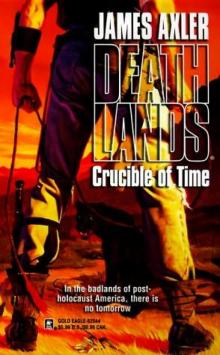 ACrucible of Time
ACrucible of Time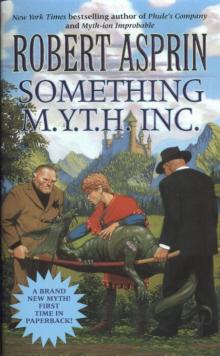 Something MYTH Inc
Something MYTH Inc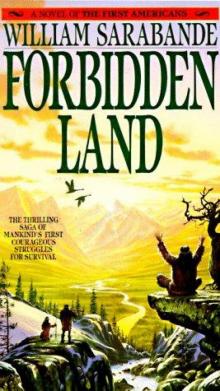 Forbidden Land
Forbidden Land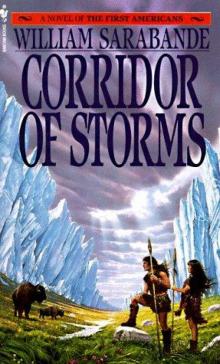 Corridor of Storms
Corridor of Storms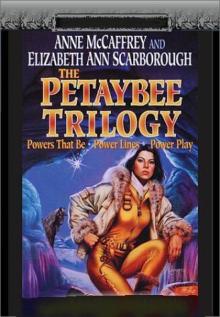 The Peytabee Omnibus
The Peytabee Omnibus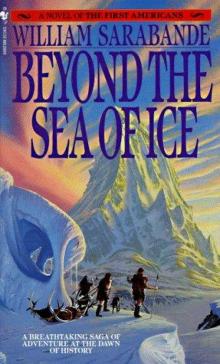 Beyond the Sea of Ice
Beyond the Sea of Ice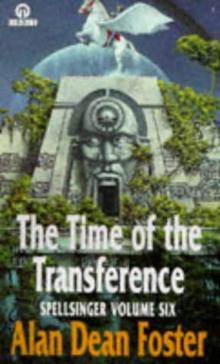 The Time Of The Transferance
The Time Of The Transferance EarthBlood
EarthBlood The Lexal Affair
The Lexal Affair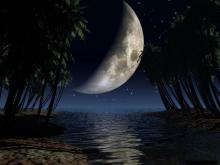 The Web
The Web Slave Ship
Slave Ship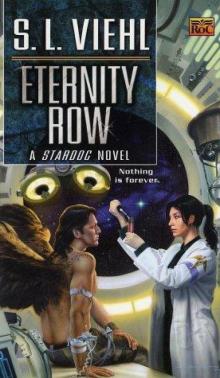 Eternity Row
Eternity Row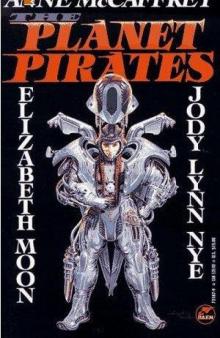 Planet Pirates Omnibus
Planet Pirates Omnibus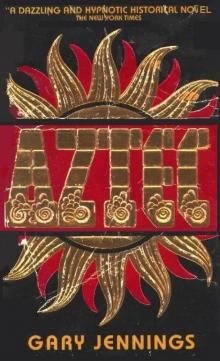 Aztec
Aztec The Awakening
The Awakening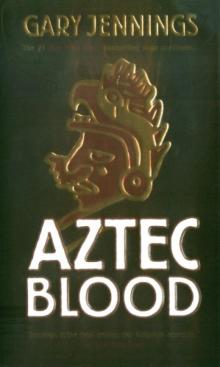 Aztec Blood
Aztec Blood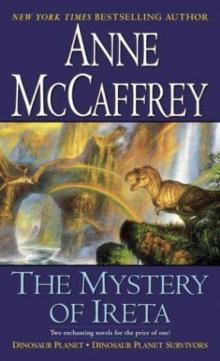 The Mystery of Ireta Omnibus
The Mystery of Ireta Omnibus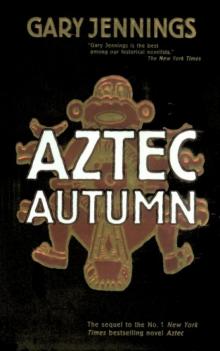 Aztec Autumn
Aztec Autumn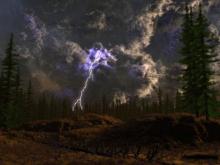 The Savage Horde
The Savage Horde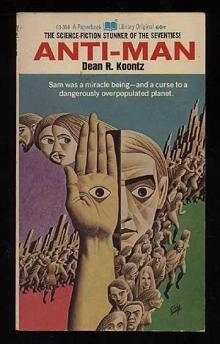 Anti - Man
Anti - Man Deep Trek
Deep Trek Starfall
Starfall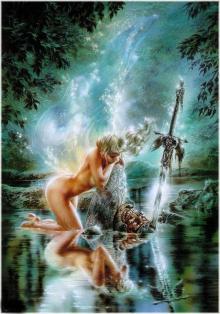 The Paths Of The Perambulator
The Paths Of The Perambulator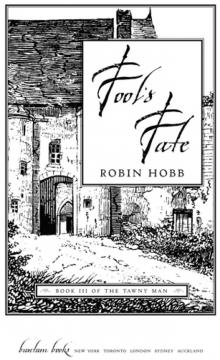 Fool's Fate
Fool's Fate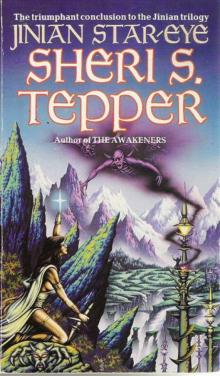 Jinian Stareye
Jinian Stareye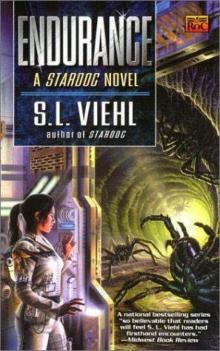 Endurance
Endurance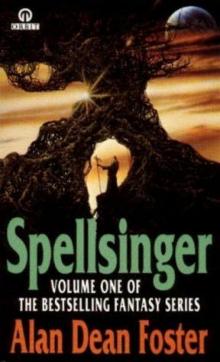 Spellsinger
Spellsinger Hybrids
Hybrids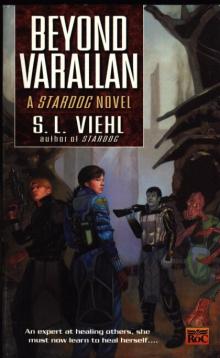 Beyond Varallan
Beyond Varallan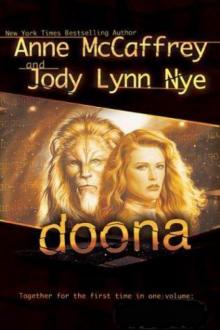 Doona Trilogy Omnibus
Doona Trilogy Omnibus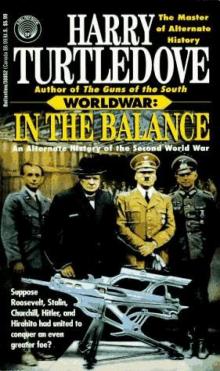 In th Balance
In th Balance Planerbound
Planerbound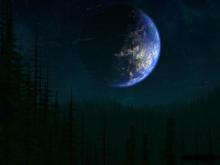 The Nightmare begins
The Nightmare begins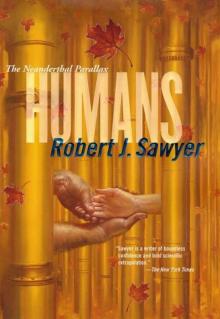 Humans
Humans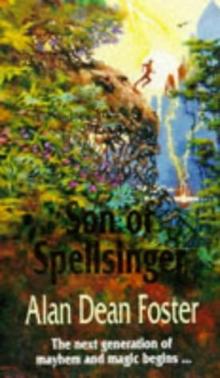 Son Of Spellsinger
Son Of Spellsinger